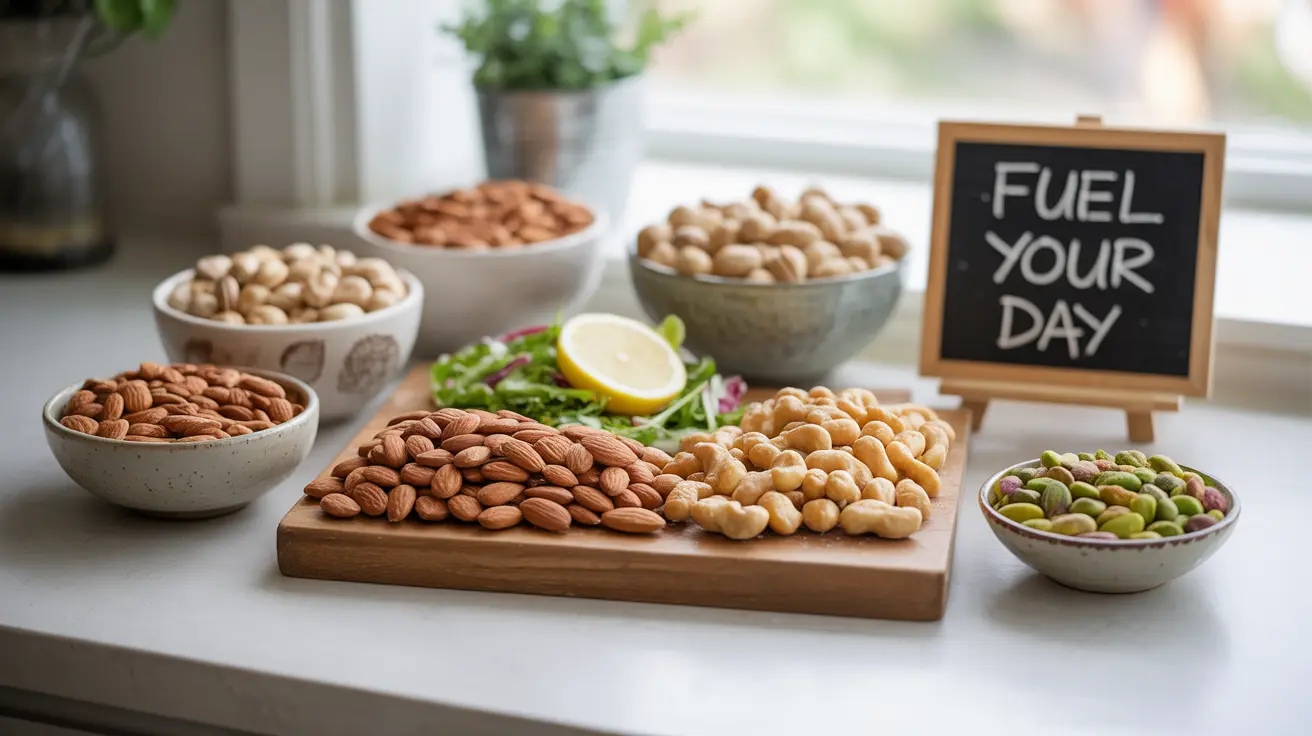For those seeking to boost their protein intake through plant-based sources, nuts offer an excellent solution. These nutrient-dense powerhouses not only provide substantial protein but also deliver essential vitamins, minerals, and healthy fats. Understanding which nuts pack the most protein can help you make informed choices for your dietary needs.
In this comprehensive guide, we'll explore the nuts with the highest protein content, how to incorporate them into your diet effectively, and their broader nutritional benefits. Whether you're following a plant-based diet or simply looking to diversify your protein sources, this information will help you make smart choices about nut consumption.
Top Nuts for Protein Content
Different nuts offer varying levels of protein, with some standing out as particularly protein-rich options:
Peanuts
Though technically a legume, peanuts top the list with approximately 7 grams of protein per ounce (28g). They're also rich in biotin and healthy monounsaturated fats.
Almonds
Providing about 6 grams of protein per ounce, almonds are also excellent sources of vitamin E and fiber. Their versatility makes them a popular choice for various dietary needs.
Pistachios
With roughly 6 grams of protein per ounce, pistachios offer a complete protein profile along with antioxidants and heart-healthy compounds.
Incorporating High-Protein Nuts Into Your Diet
Meal Integration Strategies
Consider these practical ways to add protein-rich nuts to your daily meals:
- Add chopped nuts to morning oatmeal or yogurt
- Include nuts in salads for extra protein and crunch
- Use nut butter as a protein-rich spread or dip
- Create homemade trail mix with various high-protein nuts
Portion Control Guidelines
While nuts are nutritious, they're also calorie-dense. A typical serving size is one ounce (about 28 grams), which equals:
- 23 almonds
- 28 peanuts
- 49 pistachios
Health Benefits Beyond Protein
High-protein nuts offer numerous health advantages beyond their protein content:
- Heart health support through healthy fats
- Blood sugar regulation
- Improved digestive health from fiber
- Antioxidant protection
- Weight management benefits
Smart Storage and Selection
To maximize the nutritional benefits of your nuts:
- Store in airtight containers
- Keep in a cool, dry place
- Choose raw or dry-roasted options over heavily salted varieties
- Check for freshness regularly
Frequently Asked Questions
What nuts have the highest protein content per serving for a plant-based diet?
Peanuts lead with 7g protein per ounce, followed by almonds and pistachios at 6g per ounce. These options are particularly valuable for plant-based diets.
How can I incorporate high-protein nuts like almonds and peanuts into my daily meals?
Add nuts to breakfast cereals, blend into smoothies, use in baking, or create nut-based sauces. They also make excellent snacks and can be incorporated into both sweet and savory dishes.
Are peanuts better than tree nuts for protein intake and overall nutrition?
While peanuts have slightly higher protein content, both peanuts and tree nuts offer unique nutritional benefits. The best approach is to include a variety in your diet to benefit from their different nutrient profiles.
What are the health benefits of eating nuts with high protein, such as pistachios and walnuts?
Beyond protein, these nuts provide heart-healthy fats, fiber, antioxidants, and various vitamins and minerals. They support cardiovascular health, help maintain healthy blood sugar levels, and contribute to overall wellness.
How many nuts should I eat per day to get enough protein without consuming too many calories?
A daily serving of 1-2 ounces (28-56g) of nuts provides a good protein boost while keeping calories in check. This amounts to about 160-320 calories, depending on the type of nut chosen.




